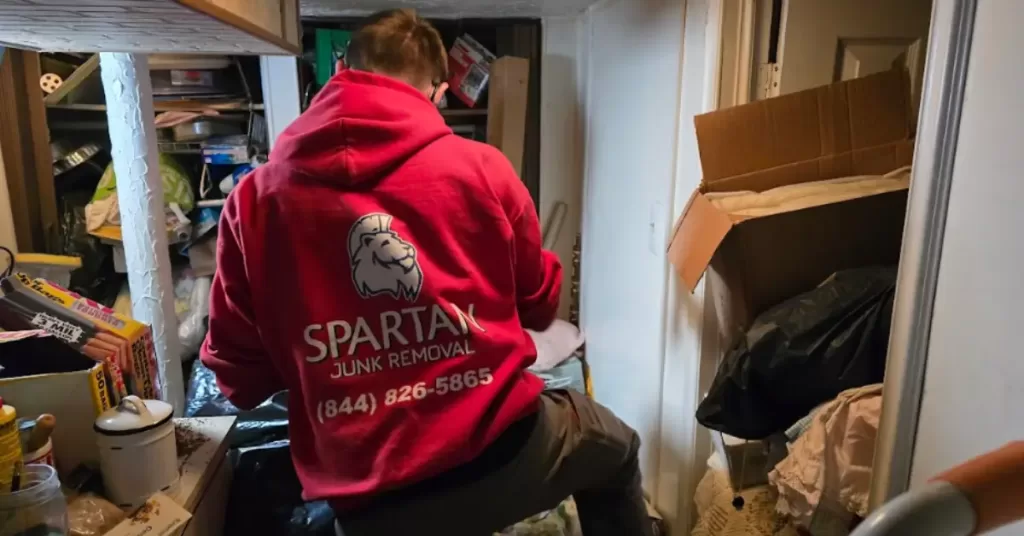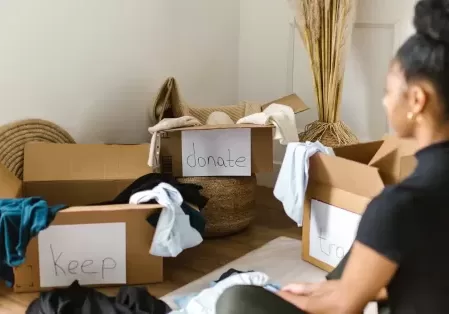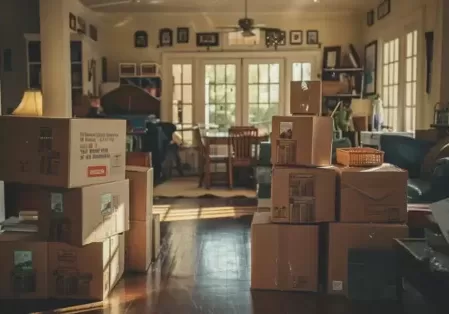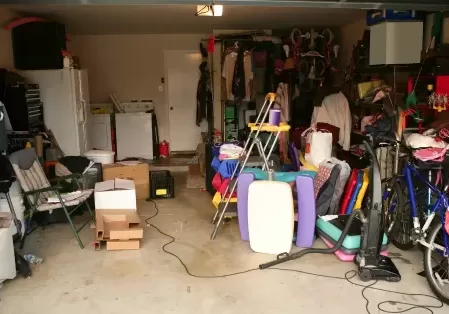How to Prepare for an Estate Sale: Your Complete Guide to a Successful Sale
An estate sale is one of the best ways to liquidate personal belongings after a loved one’s passing or when you need to downsize. Unlike a garage sale or yard sale, which typically involves fewer sale items, an estate sale includes a high volume of sale items, including high-value items such as antique furniture, fine jewelry, and household goods.
If you’re preparing for an estate sale, you need to be strategic about pricing, advertising, and organizing the event to make it a successful estate sale. Whether you’re planning a DIY estate sale or considering hiring a professional estate sale company, this guide will walk you through the entire process.
Understanding Estate Sales
An estate sale isn’t just about selling a few unwanted household items—it’s a large-scale event designed to sell everything in a home, from furniture and collectible artwork to kitchenware and high-value items like antiques and jewelry.
Unlike a garage sale or yard sale, which typically involves selling a small number of second-hand goods, an estate sale usually happens due to major life changes, such as the passing of a loved one, downsizing, or relocating.
Estate sales often include valuable items, making them different from casual sales. While garage or yard sales are usually homeowner-led, estate sales can involve estate sale companies, appraisers, or even an auction to help with pricing and organization. Many homeowners choose to hire a professional estate sale company to handle advertising, pricing, and managing unsold items, ensuring a successful estate sale.
Step-by-Step Guide on How to Prepare for an Estate Sale
1. Plan and Research in Advance
Before you hold an estate sale, careful planning helps avoid common mistakes.
- Set the Right Date:
- Many estate sales last two to three days, usually over the weekend.
- Avoid scheduling on major holidays when in-person visitors may be lower.
- Check Local Regulations:
- Some cities require permits to host the sale, especially in residential areas.
- Contact your city or homeowners’ association for rules on signage, parking, and sale restrictions.
- Research Pricing:
- Look at estate sale websites like EstateSales.net to compare prices of similar available items.
- If you’re selling high-value items such as antique jewelry, art, or collectibles, getting a professional appraisal ensures you price them correctly.
Example: If a vintage dining set sells for $500 online, but similar sets in your area go for $300, adjust accordingly to stay competitive.
- Understand Tax and Legal Considerations:
- Not all estate sales require sales tax, but high-value sales or repeat sales may need to be reported.
- Consult a tax professional to understand your state’s tax laws.
2. Inventory and Organize Items
A thorough inventory helps you stay organized and maximize profits.
- Sort Sale Items:
- Separate belongings into categories: sell, keep, donate, or dispose of.
- Ask family members if they want to keep sentimental belongings before listing items.
- Remove Personal Documents and Items:
- Secure or shred bank statements, birth certificates, and legal documents.
- Properly dispose of expired medications, damaged furniture, or non-functional electronics.
Handling Valuable and Collectible Items at an Estate Sale
- Get an Appraisal for High-Value Items:
- An appraiser helps ensure you attract serious buyers with fair pricing.
- Research first—check eBay, Sotheby’s, or other websites to see if similar items have significant value before hiring an appraiser.
- Best Selling Strategies for Collectibles and Antiques:
- Use an auction for rare or collectible items to increase demand.
- Work with estate sale companies to market high-value pieces to the right buyers.
- Eco-Friendly Disposal for Unsold Items:
- If listed items don’t sell, donate to charities or use recycling centers for unwanted textiles and electronics.
3. Prepare the Home for the Sale
A well-organized space attracts potential buyers and makes the sale more efficient.
- Stage the Home:
- Place kitchen utensils in the kitchen, furniture in designated areas, and smaller items on tables for easy browsing.
- Arrange items in categories (e.g., tools in one section and books in another) to improve visibility and increase sales.
- Ensure a Safe and Accessible Layout:
- Remove tripping hazards, ensure clear pathways throughout the home, and secure breakable items in safe spots.
- Remove tripping hazards, ensure clear pathways throughout the home, and secure breakable items in safe spots.
- Secure Restricted Areas:
- Lock doors to private rooms and place “Not for Sale” signs on restricted items.
4. Pricing Strategies for Maximum Profit
Using effective costing strategies can increase total sales and prevent leftover items.
- Use Price Tags for Every Item:
- Clearly label prices with easy-to-read price tags to avoid confusion.
- Clearly label prices with easy-to-read price tags to avoid confusion.
- Implement Smart Pricing Strategies:
- Offer bulk deals for smaller sale items (e.g., “3 books for $10” instead of price tagging individually).
Apply psychological pricing (e.g., pricing at $9 instead of $10) to make items seem more affordable.
- Offer bulk deals for smaller sale items (e.g., “3 books for $10” instead of price tagging individually).
- Set Up a Progressive Discount System:
- Day 1: Full price
- Day 2: 25% off
- Day 3: 50% off
- Have a Negotiation Plan:
- Be flexible but set a minimum acceptable price for high-value items.
- If an item is still unsold on the last day, consider bundling it with other items to encourage bulk purchases.
5. Arrange Logistics & Staffing
Managing logistics efficiently prevents chaos and theft.
- Recruit Helpers:
- Assign helpers to different rooms to prevent theft and assist buyers.
- Have one person monitor expensive items near the payment area.
- Set Up a Payment System:
- Accept cash, Venmo, PayPal, or mobile card payments for buyer convenience.
Pro Tip: Keep at least $100 in small bills for making change.
- Secure High-Value Items:
- Keep expensive or small valuables near the checkout.
- Consider a “hold table” where buyers place items while browsing.
- Plan for Large Item Pickups:
- Schedule designated pickup times for bulky furniture to avoid congestion.
6. Market and Advertise Your Estate Sale
A strong marketing strategy increases visitors and sales.
- List the Sale on Estate Sale Websites:
- Use platforms like EstateSales.net, Craigslist, and Facebook Marketplace to attract potential buyers.
- Use platforms like EstateSales.net, Craigslist, and Facebook Marketplace to attract potential buyers.
- Use High-Quality Photos in Ads:
- Take clear, well-lit photos of collectible, antique, and high-value items to boost interest.
- Take clear, well-lit photos of collectible, antique, and high-value items to boost interest.
- Use Social Media and Local Groups:
- Post in Facebook buy/sell groups and Nextdoor forums to expand local reach.
- Refresh online listings daily leading up to the sale for maximum visibility.
- Strategic Signage Placement:
- Place bright, easy-to-read yard sale signs in high-traffic areas.
- Use arrows to direct buyers throughout the neighborhood.
7. Manage the Sale Day Efficiently
The day of the sale should run smoothly and professionally to maximize profits.
- Control Entry and Exit:
- Limit the number of shoppers inside at a time to prevent overcrowding.
- Assign one entrance and one exit for easy traffic flow.
- Use a Sales Record for Large Purchases:
- Keep track of sales for tax and inventory purposes.
- Keep track of sales for tax and inventory purposes.
- Enhance Customer Experience:
- Greet buyers warmly and answer questions professionally.
- A positive shopping environment encourages multiple purchases.
- Be Prepared for Negotiation:
- Expect haggling—know your lowest price in advance.
- If a buyer is pushing for a discount too early, politely inform them of progressive markdowns on later days.
- End-of-Day Clean-Up Plan:
- Have a plan for unsold items (donation, storage, or continued online sales).
- Remove all signs and advertisements after the sale is complete.
Common Mistakes to Avoid

Avoiding these common estate sale pitfalls can make the difference between a smooth sale and a stressful experience.
1. Overpricing or Underpricing Items: Overpricing can drive away buyers while underpricing leads to financial loss. Research market value or get a professional appraisal for high-value items.
2. Not Advertising Enough: Without proper promotion on estate sale websites, social media, and local listings, you won’t attract enough potential buyers.
3. Poor Organization and Staging: Make sure everything is well displayed, with clear price tags and an easy-to-navigate setup. Messy arrangements discourage buyers.
Online vs. In-Person Estate Sales: Which One is Right for You?
Choosing between an online estate sale and an in-person estate sale depends on the type of items being sold, your target audience, and how much effort you’re willing to put into organizing the event. Both options have their advantages and drawbacks, so it’s important to consider which method best suits your needs.
Online Estate Sales
Pros
- Wider Audience Reach: Online platforms allow you to attract potential buyers from across the country, increasing the chances of selling niche or collectible items.
- Convenience: No need for physical setup or staffing. You can list items from home and manage inquiries digitally.
- Flexible Pricing: Prices can be adjusted over time, allowing you to test different price points and negotiate offers without the pressure of an in-person event.
- Less Immediate Stress: Unlike an in-person estate sale, an online sale doesn’t require you to host the sale in a short timeframe, giving you more time to organize listings.
Cons
- Shipping and Handling: Sellers are responsible for packaging and shipping items, which adds extra costs and effort. Large furniture and fragile items may be difficult to sell online.
- Slower Sales Process: Unlike an in-person estate sale, where buyers take their purchases home immediately, online sales can take days or weeks to complete.
- Limited Buyer Inspection: Buyers can’t physically examine items for sale, which may result in more questions, returns, or lower offers.
In-Person Estate Sales
Pros
- Immediate Sales: Buyers can purchase and take items home the same day, making it easier to sell everything in a short period.
- Higher Sales Volume: A well-advertised successful estate sale can bring in a large number of shoppers, helping you quickly liquidate household goods.
- Easier Negotiations: Face-to-face interactions allow for real-time negotiations, potentially leading to higher pricing for valuable antique and collectible pieces.
- No Shipping Hassle: Since buyers pick up items on-site, there’s no need to worry about shipping logistics or damage during transit.
Cons
- Requires More Setup: You’ll need to stage the home, organize price tags, and have staff or volunteers manage the crowd.
- Limited to Local Buyers: Your reach depends on local shopper turnout, which may limit the number of interested buyers.
- Weather and Scheduling Constraints: If you hold the estate sale outdoors or in a seasonal market, bad weather or conflicting events may affect attendance.
Bottom line: Both online and in-person estate sales have their benefits, and the right choice depends on your needs. If you want to attract potential buyers nationwide and sell rare collectible items, an online sale might work best. If you need to liquidate a large number of items for sale quickly, an in-person estate sale is the way to go. You can also combine both methods to maximize sales and convenience.
When to Get Professional Help for Estate Sales
While a DIY estate sale can be manageable, there are times when hiring estate sale companies is the best option. Experts can handle pricing, advertising, and managing unsold items, saving you time and effort. Here are some instances when hiring a professional estate sale service is highly recommended:
- The Estate Has High-Value or Specialized Items:
If the sale includes antique furniture, fine jewelry, rare collectibles, or artwork, it’s best to work with an appraiser or estate sales professional who understands how to price items accurately and market them to the right buyers.
- There’s a Large Volume of Sale Items:
Managing an estate sale isn’t easy when dealing with an entire house full of belongings. Professional estate sales companies have the experience and staff to efficiently organize, stage, and sell everything while maximizing profits.
- You’re on a Tight Deadline:
If you need to hold the estate sale quickly due to an upcoming home sale, move, or legal deadline, professionals can simplify the process. They can plan an estate sale faster and ensure it runs smoothly.
What to Do After the Estate Sale
1. Handle Unsold Items
Not everything will sell, but that doesn’t mean these items must go to waste. Here’s how to responsibly manage unsold items:
- Donate: Many charities, such as Goodwill, Salvation Army, and Habitat for Humanity, accept furniture, kitchenware, and household goods. Some organizations even offer free pickup services.
- Sell Online: If you have valuable collectible or antique pieces left, consider listing them on Facebook Marketplace, Craigslist, or specialized estate sale websites to reach more buyers.
- Repurpose or Gift: Offer remaining items to family and friends who may find them useful.
- Dispose Responsibly: For broken, damaged, or unusable belongings, schedule a junk removal service or check local recycling centers for proper disposal.
2. Clean Up the Property
Once the sale is over, it’s time to restore the home to its original state.
- Remove All Estate Sale Signage: Take down any directional signs, price tags, and flyers posted in the neighborhood. Leaving them up can confuse people and violate local ordinances.
- Tidy Up the Space: Sweep floors, wipe down surfaces, and clear out any leftover clutter. A clean home is more inviting if it’s going on the market.
- Coordinate Item Pickups: If buyers purchase large items for sale, make sure they retrieve them on the agreed-upon date to avoid unnecessary delays.
- Confirm Next Steps if Selling the Home: If the estate property is being listed for sale, schedule a deep cleaning and staging for potential buyers.
Assistance from a Professional Estate Cleanout Service
If there are many leftover items after the estate sale, handling them can feel like a daunting task. A professional estate cleanout service offers a practical solution by efficiently sorting, donating, and disposing of unsold items.
These services ensure everything is managed properly, reducing stress and saving time. By simplifying the process, they help turn a challenging cleanup into a successful event, making the home ready for sale or new occupants. Consider contacting them to discuss your specific needs and get a clear estimate of the estate cleanout cost.
Final Thoughts: Ensuring a Smooth and Successful Estate Sale
Preparing for an estate sale takes careful planning, from setting pricing to organizing belongings and handling unsold items. Whether you choose to run an estate sale on your own or hire a professional estate sale company, proper preparation ensures a successful estate sale.

If you prefer a stress-free experience, consider hiring a professional estate cleanout service to assist with sorting, donating, and disposing of unsold items. Professional services can help you efficiently clear out the home, ensuring that everything is handled responsibly—so you can focus on moving forward with peace of mind.
FAQs About Preparing for an Estate Sale
What Sells Best at Estate Sales?
Antiques, collectibles, furniture, jewelry, vintage clothing, kitchenware, tools, and electronics are among the most popular items for sale at an estate sale. Buyers often look for unique and high-value items, such as antique decor, fine china, and retro electronics. Well-maintained furniture and collectible pieces also tend to attract more interest and higher pricing.
What Percentage Do Most Estate Sale Companies Take?
Most companies charge a 30-50% commission on the total sales revenue, depending on the services provided. The commission covers advertising, staffing, pricing, setup, and managing unsold items. Some companies may offer additional services, such as estate cleanout or appraisal, which could impact the overall cost.
What Is the Best Month to Have an Estate Sale?
Spring and summer are the best seasons to hold an estate sale because buyers are more active, and better weather increases shoppers. Fall can also be a good time, especially before the holiday season when people are shopping for home goods. Winter months may be less ideal due to weather conditions, but online sales can still attract buyers year-round.
What Not to Sell at an Estate Sale?
Avoid selling personal documents, prescription medications, expired safety gear, perishable food, and certain restricted items like liquor. Personal records such as bank statements, passports, and medical documents should be securely disposed of. Liquor sales often require special permits, and outdated safety gear (e.g., car seats and helmets) may no longer provide proper protection.
How Far in Advance Should You Start Preparing for an Estate Sale?
Preparation should ideally begin at least 4-6 weeks in advance to allow enough time for sorting belongings, researching pricing, advertising, and organizing the sale layout. If you’re working with an estate sale company, booking them early ensures availability, especially during peak seasons.
After the sale, the next challenge is handling the remaining items and cleaning out the space. A DIY cleanout can feel overwhelming, but using an estate cleanout checklist can help guide the process if professional service isn’t an option for you.
Should You Clean or Repair Items Before Selling Them?
Yes, but only if the effort is worth the return. Cleaning furniture, jewelry, and kitchenware can enhance their appeal, but expensive repairs should be weighed against the potential sale price. Small fixes, like tightening loose screws or wiping down surfaces, can make a difference in attracting potential buyers.
How Do You Handle Large or Bulky Items During an Estate Sale?
For large furniture, appliances, or heavy items, clearly state whether buyers need to bring their own transportation. You may want to arrange a pickup schedule to prevent congestion throughout the home on sale day. Offering local delivery for an extra fee can also make selling items easier.






